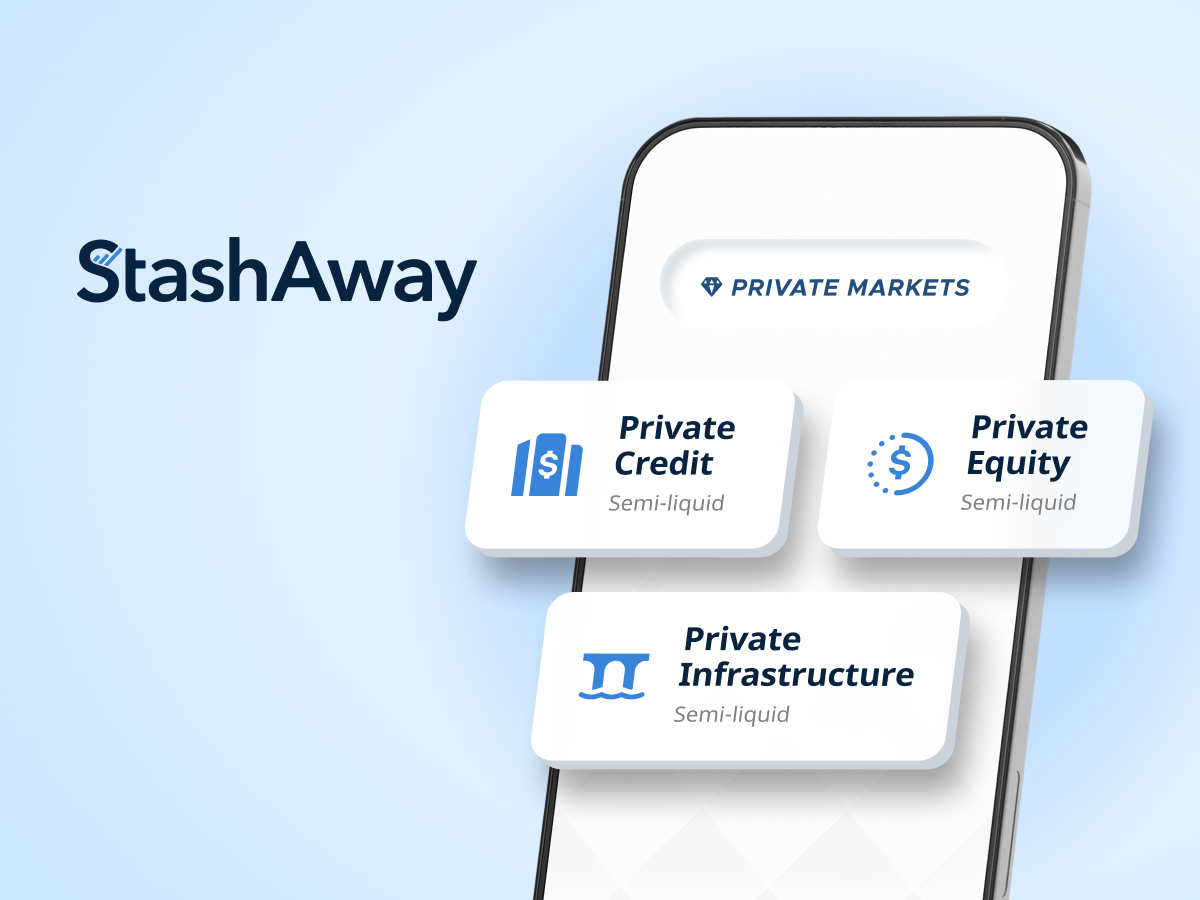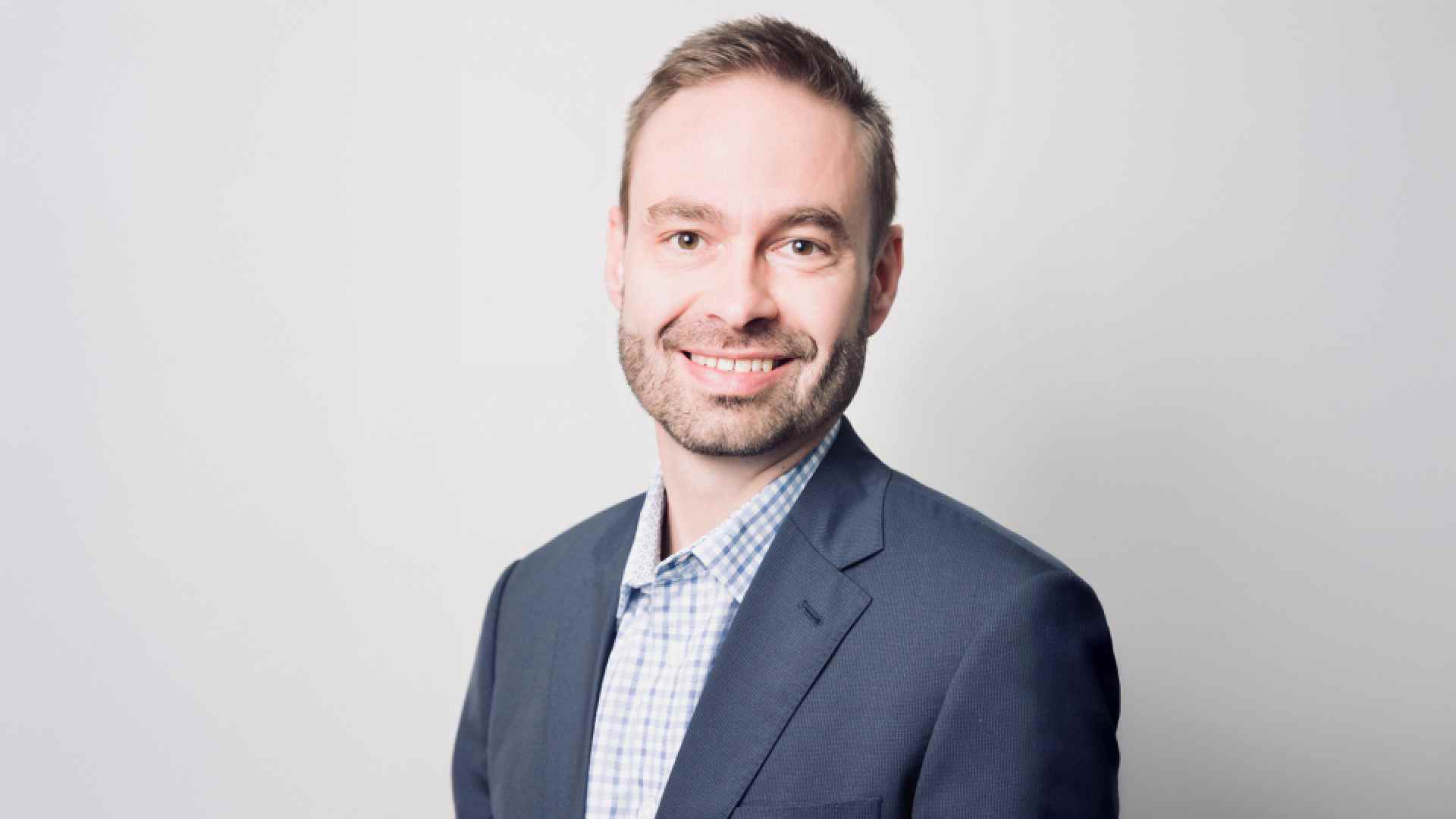Financial
ADNOC Distribution Reports Record Fuel Volumes and EBITDA for First Nine Months of 2024

ADNOC Distribution today announced its financial results for the third quarter and the first nine months of 2024. The Company reported its highest-ever nine-month EBITDA of $790 million (AED2.90 billion) and underlying EBITDA of $721 million (AED2.65 billion), implying growth of 5.9% and 11.6% year-on-year, respectively.
In the first nine months of 2024, the Company’s free cash flow reached $537 million (AED1.97 billion), while maintaining a robust balance sheet with a net debt-to-EBITDA ratio of 0.56x as of 30 September 2024. This strong financial standing positions the Company favourably for future growth and attractive shareholder distributions. These achievements can be attributed to strong retail and commercial performance, including highest-ever nine-month fuel volumes, robust non-fuel retail (NFR) contributions, and cost efficiency improvements.
EBITDA growth and strong free cash flow generation were also supported by material like-for-like OPEX savings totalling $13 million (AED48 million) over the first nine months of 2024, putting the Company on track to achieve $50 million (AED184 million) in OPEX savings between 2024 and 2028.
Eng. Bader Saeed Al Lamki, CEO of ADNOC Distribution, said: “ADNOC Distribution’s strong underlying financial performance is testament to the Company’s solid fundamentals and its ability to execute against strategic objectives. Across the first nine months of the year, we made steady progress expanding our domestic retail presence and market share, while also seeing growing returns from our international expansion. To continue to unlock shareholder value, the Company is pursuing AI, advanced digital technologies, and innovation-enabled growth across our entire value chain, engendering considerable OPEX savings and improvements to our industry-leading customer experience.”
The H1 2024 dividend of $350 million (AED1.285 billion) was distributed in October, aligning with the approved five-year policy which expects the Company to distribute annual dividend of $700 million (AED2.57 billion), equivalent to 20.57 fils per share, or a minimum of 75% of net profit, whichever is higher, offering long-term visibility for shareholders. The H2 2024 dividend will be paid in April 2025, subject to the discretion of the Board and approval of shareholders.
OPERATIONAL PERFORMANCE
In the first nine months of 2024, ADNOC Distribution exceeded 11 billion liters in total fuel volumes, marking a 9.2% year-on-year increase, driven by network expansion, economic growth, and growing contributions from international operations. Non-fuel retail transactions also grew by 9.4% year-on-year during the period, with a 10.3% growth in Q3 alone. The convenience store conversion rate reached 25.5% over the nine-month period – the highest for this period in five years – including 25.9% in Q3 2024. Key growth initiatives included expanding premium food and beverage offerings, enhancing car services, and optimizing real estate to strengthen the Company’s position. ADNOC Voyager maintained its leading position as the UAE’s number one lubricant brand by market share, now available in 43 countries, up from 34 the same time last year.
In the nine-month period, ADNOC Distribution added more than 60 commercial retail tenants across its network, including new stores, restaurants, and car services, with plans to add another 20 by the end of the year. The Company aims to double the number of property units occupied by top international and regional food and beverage brands by the end of 2025.
ADNOC Distribution added 19 new service stations in the first nine months of 2024, bringing the total to 855 across the UAE, KSA and Egypt, achieving its full-year goal of adding 15 to 20 stations ahead of time. Eight of these, launched in Dubai in Q3, cater specifically to trucks, in partnership with Dubai’s Road and Transport Authority (RTA).
As of 30 September 2024, ADNOC Distribution’s UAE network included 112 fast and super-fast charging points, more than double compared to 53 at the end of 2023, with plans to reach 150-200 charging points by the end of 2024.
Future-proofing the business is an iterative and crucially important process at ADNOC Distribution. At present, the Company is actively pursuing more than 20 AI-focused projects by integrating AI and advanced technologies across all business segments, empowering data-driven decision-making to drive growth, enhance operational efficiency, and elevate customer experience.
ESG STEWARDSHIP
Reaffirming its commitment to leading Environmental, Social and Governance (ESG) practices, ADNOC Distribution announced the formation of an ESG subcommittee to its Board’s Executive Committee, anchoring ESG oversight and responsibility among the Company’s highest governing bodies. The new committee will be chaired by a non-executive Independent Board member and will be comprised of specialists with the requisite experience to supervise ESG performance.
In October 2024, ADNOC Distribution received the Dubai Chamber of Commerce’s ESG label, the first fuel retailer in the Middle East to do so, a strong recognition of the Company’s ESG leadership within the sector and beyond.
FUTURE OUTLOOK
ADNOC Distribution’s strategic plan is underscored by a solid financial foundation and strong cash generation. To pursue further growth, the Company has earmarked between $250 and $300 million in CAPEX allocations for calendar year 2024, with 70% of the investment directed towards growth-focused initiatives.
Since its IPO in 2017, ADNOC Distribution has delivered significant returns to shareholders through enhanced market value and consistent dividends, including the distribution of $4.4 billion in dividends. Building on its strong financial results and operational performance over the past nine months, the Company is well-positioned for its next phase of strategic and accelerated growth.
Financial
UAE MOVES TOWARDS A MORE COMPLIANCE-FOCUSED TAX LANDSCAPE WITH RECENT VAT REFORMS: DHRUVA

Dhruva, a premier tax advisory firm with deep expertise across the Middle East, India, and Asia, stated that the UAE’s latest amendments to the VAT Law and the Tax Procedures Law, issued by the Federal Tax Authority (FTA) which are effective from 1 January 2026, represent a significant shift toward a more structured, and risk-focused tax environment. These amendments are expected to reinforce responsible compliance behaviors and reduce administrative friction for UAE businesses.
Dhruva noted that one of the most practical and welcoming changes is that it eliminates the requirement for taxpayers to self-issue tax invoices for imports subject to the reverse charge mechanism, which provides a lot of ease to businesses. Post series of amendments and clarifications issued by the FTA in 2025 in relation to self-issuance of tax invoices for imports, while a general exception was granted for such requirement for import of services, the same were required in case of import of goods for record-keeping purposes. This often-added administrative complexity without impacting the actual tax liability or input tax entitlement. Under the updated rules, taxable businesses have removed the obligation entirely, and hence, businesses will only need to maintain standard supporting documentation, such as invoices, contracts, and transaction records.
However, the firm highlighted that while some administrative burdens are being eased, compliance expectations are tightening elsewhere. One of the amendments gives the FTA authority to deny input tax recovery in cases linked to tax evasion – where a taxpayer knew or, critically, should have known, that a supply or its broader supply chain was connected to tax evasion. The law clarifies that taxpayers will be deemed to have been aware if they fail to verify the validity and integrity of the supply in accordance with procedures to be issued by the FTA.
Dhruva explained that historically, the responsibility to account for VAT rested primarily with the supplier, and recipients focused mainly on validating the tax invoice and meeting standard input-tax recovery conditions. In practice, however, the FTA has often linked a recipient’s input-tax eligibility to the supplier’s discharge of output VAT, denying recovery where gaps existed. The latest amendment now formally embeds this position in law, imposing additional due-diligence obligations on the recipient.
Ujjwal Pawra, Partner at Dhruva Consultants, commented, “This is a significant change. It is a clear message that the right to input tax recovery comes with the responsibility to validate the integrity of one’s suppliers and supply chain. Businesses must now demonstrate that they exercised practical, documented, and consistent due diligence. Clean invoices alone are no longer enough; what matters is a clean process.”
While the procedures and conditions are awaited, Dhruva advised that companies reassess onboarding procedures, supplier-vetting protocols, and documentation trails to ensure they align with the FTA’s expected standards.
Another material operational change is the introduction of a defined timeframe to act on credit balances. Under the amended framework, businesses will generally have up to five years from the end of the relevant tax period to request a refund of a credit balance or use that balance to settle tax liabilities, with targeted flexibility in specified cases where credits arise late in the cycle.
Transitional relief is also available for certain older credits around the changeover, which can help businesses address legacy positions in an orderly way. Dhruva said these changes reduce the risk of credits remaining unresolved on the balance sheet, improve cash flow planning, and encourage clearer internal ownership of refund positions.
Ujjwal further added, “The UAE has introduced a more robust operating framework for credit balances and refunds in line with international best practices. The message is simple: know your credits, map the deadlines, and file claims that are clear, complete, consistent, and easy to validate.”
Dhruva advised UAE businesses to act now with a finance-led approach. This starts with building a central credit-balance register by tax type and tax period, assigning an accountable owner, and tracking action dates so credits are either utilised or claimed in time. Businesses should also treat refund submissions as audit-ready files by preparing reconciliations, supporting documents, and a concise explanation of how the credit arose and why the amount is correct before submitting, rather than rebuilding the file after queries begin. In parallel, companies should prioritise older credit positions to assess whether they fall within the transitional relief window and avoid last-minute filings.
The firm also advised businesses to monitor any binding directions issued by the FTA and align their tax positions, documentation, and system settings accordingly to minimize interpretational differences and strengthen consistency over time.
Financial
The StashAway Story and the Future of Digital Investing

By Srijith KN, Senior Editor
Financial Integrator

StashAway’s journey began when Co-founder and CEO Michele Ferrario found himself frustrated and dissatisfied with the investment landscape marked by high fees and a lack of transparency. By age 35, his corporate career had provided him with substantial savings — yet when he approached his banks to invest in a portfolio of ETFs, he was sold expensive products that didn’t fit his needs.
This frustration inspired him to create a platform that would simplify investing while providing access to sophisticated financial products. In July 2016, he, along with the other two co-founders, came together, and by July 2017, after navigating regulatory requirements, StashAway was launched in Singapore.
“Stash,” as the word suggests—meaning to store something safely for future use—perfectly reflected what he wanted to achieve for himself. Over the past nine years, that personal need has grown into a company of more than 200 professionals, operating across five regions through a single, centralized technology platform.
Today, StashAway stands out as a pioneer in digital wealth management. The company leverages technology and deep investment expertise to offer accessible, low-cost alternatives to traditional wealth management, with a particular focus on private markets. Its approach has resonated with clients and positions the firm to benefit from regional economic growth and an increasingly digitally savvy population.
In the UAE, StashAway operates from the DIFC and has extended its presence to Malaysia, Thailand, and Hong Kong, with a chief investment officer based in Hong Kong overseeing investment strategies.
Democratizing Access to Investments
The company’s core strategy revolves around democratizing access to sophisticated investments. Private markets, which historically deliver higher returns at lower volatility, are central to this approach. By making private market products for a fraction of traditional minimums, StashAway removes the barriers that have long prevented high-net-worth individuals from participating in this fast-growing asset class. The platform also emphasizes transparency, with fees typically 50–75% lower than competitors, avoiding the hidden charges common in conventional wealth management products.
In public markets, StashAway offers an ETF-based, globally diversified portfolio called General Investing. The General Investing portfolio uses a proprietary investment strategy called ERAA (Economic Regime Asset Allocation). They have recently launched Sharia Global Portfolios, offering the same approach in a Sharia-compliant format. These Flexible Portfolios allow customers full control to create their own allocations using ETFs—either by using an existing template or building a portfolio entirely from scratch.
Capitalizing on the UAE Market
The UAE market presents a unique opportunity for StashAway. The region is home to a digitally engaged population with significant underinvested wealth. While 81% of financial wealth in the UAE is investable, nearly half remains in cash, losing value to inflation. StashAway’s platform appeals to a diverse range of clients, from seasoned executives to younger retail investors, aligning perfectly with regional growth initiatives like Dubai 2033, which targets strong GDP growth and population expansion.

A Comprehensive, Client-Focused Approach
What sets StashAway apart is its comprehensive, client-focused approach. Its offerings include globally diversified portfolios, flexible build-your-own options, Sharia-compliant solutions, thematic strategies, and access to private equity, infrastructure, and private credit for accredited investors. The platform’s investment philosophy is long-term, balancing risk and reward according to individual goals, while its high service standards ensure responsive client engagement. And thus far I have been having a frictionless digital experience and went through a quick onboarding process. Client acquisition is primarily driven online, with dedicated advisors for high-net-worth clients under StashAway Reserve. Other users can engage through the app and are supported by StashAway’s responsive client experience team through email, phone call, or WhatsApp.
Shaping the Future of Digital Investing
As the UAE continues to attract global wealth, its wealth management landscape is becoming increasingly digital, with affluent investors seeking alternative investment opportunities. In an industry often criticized for opacity and complexity, StashAway is redefining investing by making it more transparent, accessible, and tailored to the modern investor. By combining advanced technology, strategic insight, and personalized solutions, the company is not just managing wealth—it is shaping the future of digital investing in the UAE and across the region.

_________________________________________________________
The Brief:
StashAway is a digital investment platform that was launched in 2017 to empower people to build and protect wealth in the long term. Offering simple, intelligent, and cost-effective investment and cash management solutions, StashAway has led the way in transforming the way people invest and grow wealth. Today, StashAway operates in five markets, Singapore, Malaysia, Hong Kong, the UAE, and Thailand, with billions of dollars in assets under management. The company was recognised by The World Economic Forum as a Technology Pioneer in 2020 and ranked among CNBC’s World’s Top Fintech Companies in 2023, 2024, and 2025.
Financial
5 SMART WAYS UAE TRAVELERS CAN PROTECT THEIR FINANCES THIS FESTIVE SEASON

By Hennie du Plessis, Senior Vice President, Payment Services, Middle East and Africa at IDEMIA Secure Transactions (IST)
The festive season is one of the busiest periods of the year for UAE travelers. From year end getaways and family visits, to overseas shopping and digital gifting, consumers increasingly rely on contactless cards and mobile wallets to make payments quickly and conveniently.
Beyond higher spending, the festive season also acts as a real stress test for digital payment ecosystems. Transaction volumes peak, payment environments become less familiar, and consumers move rapidly across borders. This combination of factors increases exposure to fraud if the right safeguards are not in place. As digital payments scale, security becomes a critical enabler of trust.
According to IDEMIA Secure Transactions’ latest Global Consumer Payment Survey, which included UAE respondents aged 18 to 71, more than 8 in ten consumers have already adopted digital cards with biometric features, while 92 percent express interest in numberless cards. These figures reflect a growing expectation for payment experiences that combine speed, simplicity, and security.
With contactless payments now accounting for 84 percent of face-to-face transactions in the UAE and mobile wallet usage surpassing 50 percent, the festive season is a critical moment for travelers to reassess how they protect their finances while on the move.
1. Avoid Public Wi-Fi for Payment Activity
Festive travel often means relying on airport or hotel Wi-Fi, but unsecured networks remain a common entry point for cybercriminals. Accessing banking apps or making purchases over public Wi-Fi can expose sensitive information at interception. Travelers should use mobile data or a trusted VPN when handling financial transactions. A few moments of convenience are never worth the risk of compromised financial data, especially during peak travel periods.
2. Use Secure Digital Payment Solutions
Not all payment tools offer the same level of protection. Today, tokenization has become a global industry standard for securing digital transactions, replacing sensitive card details with unique digital tokens that are useless if intercepted. Mobile wallets such as Apple Pay, Google Pay, and Samsung Pay already rely on this technology.
Beyond protecting data in transit, tokenization also limits exposure in the event of merchant-side data breaches, as real card numbers are never stored or shared. Tokens are typically device-specific and transaction-bound, adding an additional layer of protection even if credentials are compromised elsewhere.
IDEMIA Secure Transactions plays a key role in enabling tokenized payments at scale, supporting secure transactions across in-store, online and in-app environments through its EMVCo-certified Token Platform. Digital co-badged cards offer global compatibility without sacrificing local functionality. By ensuring that real card numbers are never shared, tokenization significantly reduces fraud risk while preserving a smooth user experience. In addition, digital wallets can be remotely suspended if a device is lost or stolen, offering travelers greater control and peace of mind while abroad.
3. Decline Dynamic Currency Conversion
While shopping abroad during the festive season, merchants often offer travelers the option to pay in AED. This practice, known as dynamic currency conversion, typically includes hidden markups and unfavorable exchange rates. Paying in the local currency allows banks to apply more transparent conversion rates, helping consumers avoid unnecessary costs. This simple choice can make a meaningful difference for frequent travelers and international shoppers alike.
Another possibility for travelers is to use the Tap to Phone technology provided by some banks and supported by IST. Instead of having to switch cards across borders, it enables the travelers to modify their card features, such as credit/debit options and the currency used for transactions, with a simple tap on a smartphone via their banking app. This simple habit can save money and ensure better financial clarity while greatly facilitating international card usage.
4. Enable Real Time Alerts and Card Controls
With spending increasing during the festive period, real time monitoring is essential. Many UAE banks and fintech platforms offer instant transaction alerts, spending limits and location-based restrictions that allow consumers to monitor activity as it happens.
Crucially, modern security no longer has to come at the expense of convenience. These tools enhance protection while maintaining the fast, frictionless payment experiences that consumers expect, particularly in a market where one-click and contactless payments are widely adopted. This aligns with consumer expectations, as 96 percent of UAE users prefer simplified one click payment experiences. Real time controls enhance security without adding friction.
5. Secure Devices Before You Travel
Smartphones now function as wallets, boarding passes and identity tools. Before travelling, users should update device software, enable biometric authentication and avoid storing sensitive information in unsecured apps. Travelers should also activate remote lock and wipe functionality, ensure cloud backups are enabled, and avoid carrying all payment methods on a single device. Keeping at least one physical card separate from the phone provides an important fallback. While digital wallets rely on encrypted token technology, 29 percent of surveyed users still express concerns about digital card security, and 43 percent do not fully understand how these tools work. Basic preparation can significantly reduce risk and soothe concerns.
As UAE card payments are expected to reach USD 150 billion this year, the festive season highlights the need for secure and user-friendly payment infrastructure. By adopting the right tools and habits, travelers can focus on celebrating rather than dealing with fraud.
For the payments industry, the challenge is clear: security must be built into every transaction in a way that protects users without disrupting their experience. When trust is embedded seamlessly, travelers are free to enjoy the moments that matter most, wherever their journey takes them.
-

 Tech News1 year ago
Tech News1 year agoDenodo Bolsters Executive Team by Hiring Christophe Culine as its Chief Revenue Officer
-

 VAR9 months ago
VAR9 months agoMicrosoft Launches New Surface Copilot+ PCs for Business
-

 Tech Interviews2 years ago
Tech Interviews2 years agoNavigating the Cybersecurity Landscape in Hybrid Work Environments
-

 Tech News6 months ago
Tech News6 months agoNothing Launches flagship Nothing Phone (3) and Headphone (1) in theme with the Iconic Museum of the Future in Dubai
-

 Tech News2 years ago
Tech News2 years agoBrighton College Abu Dhabi and Brighton College Al Ain Donate 954 IT Devices in Support of ‘Donate Your Own Device’ Campaign
-

 VAR1 year ago
VAR1 year agoSamsung Galaxy Z Fold6 vs Google Pixel 9 Pro Fold: Clash Of The Folding Phenoms
-

 Editorial1 year ago
Editorial1 year agoCelebrating UAE National Day: A Legacy of Leadership and Technological Innovation
-

 Tech Features11 months ago
Tech Features11 months ago5 Urgent Questions About Healthcare Network Cybersecurity in the Middle East
























